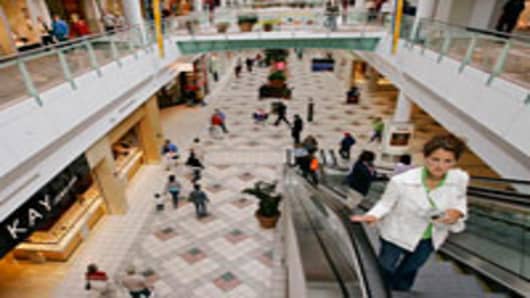The Law Booth doesn't have any TV ads yet — "We're developing a strategy," Rozier said — but the unconventional setup has nevertheless caught people's attention. Many clients first learned about the Law Booth on Black Friday last November, when the lawyers opened at 4 a.m. along with the mall.
Fifty years ago, marketing any kind of legal service was considered taboo and an activity that some lawyers thought would taint their profession with a veneer of profit seeking. But after a Supreme Court decision defined legal advertising as free speech in 1977, hordes of firms began taking out ads, spending $428 million on TV ads in 2002, versus $366,000 in 1977, adjusted for inflation.
Retail might be the new frontier. The trend is catching on in the United Kingdom: Last April, bookstore WHSmith announced that it would open 500 legal "access points" in its stores. New legislation, nicknamed the "Tesco law" after the supermarket chain, allows non-lawyer investors to hold shares in British law firms, a change that is expected to make accessing legal services as easy as shopping at Tesco.
In America, doctors are also experimenting with providing services in stores. CVS , Duane Reade, Walgreens and Walmart all have walk-in clinics that let people consult a doctor or nurse while shopping. According to a study from Rand Corp.,the number of retail clinics increased tenfold from 2007 to 2009.
Some lawyers argue that the commercialization of legal services has changed the industry for the worse, causing a huge surge in claims and a culture of litigation as people try to sue for just about anything. Others say that marketing and advertising simply help disenfranchised people learn about services that they wouldn't otherwise know about.
"Allowing access [to lawyers] has been a great benefit for the community," said Richard Carey, 28, one of Rozier's two partners at the Law Booth. "We want to be where the people are. If people are shopping at 4 a.m., we want to make sure we're there."
One surprise for Carey and Rozier has been the diversity of the Law Booth's clients. "We thought that bankruptcy and foreclosure would be the main practice areas," Rozier said. "But it's much more of a cross-pollination, people who qualify for legal aid and people who can afford the regular market."
Open only four months, the Law Booth already has plans for expansion. Rozier is considering new locations at other nearby malls. A law student contacted her asking if he could open a franchise once he graduates.
But do malls really want people to be reminded of their looming debt while browsing at Victoria's Secret? The mall's owner, Simon Properties, thinks the Law Booth is a good concept, according to Rozier. "It wasn't difficult to convince them as long as we promised we wouldn't sue them for anything."


